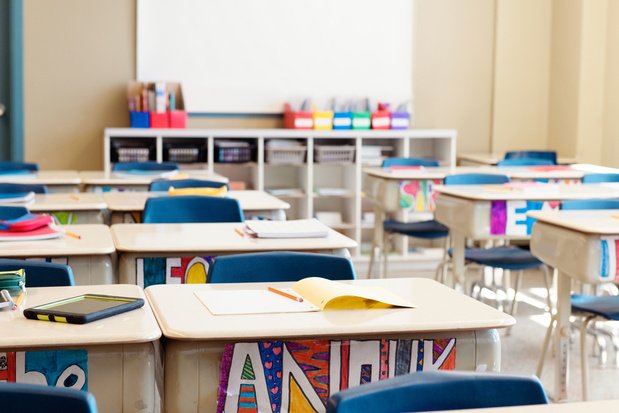While virologist Steven Van Gucht acknowledged the reasons for relaxing quarantine measures for schools, he has stressed that the new rules by themselves will not be a silver bullet for all problems in the education sector.
Speaking on VRT television programme 'De Afspraak' on Wednesday evening, Van Gucht said that the new rules that replace the quarantine policy will not necessarily fix everything.
"The impact of the old rules was very limited. The general measures – face masks, ventilation, class bubbles – are much more important," he said, adding that he understands that the ministers took a close look at the procedures.
Still, the new measures – which state that only infected children must stay at home – do not solve the problem. "There are a lot of infections, resulting in sick teachers and staff absence. People can still get very aggravating, flu-like symptoms. That is also why classes and schools have to be closed. The new rules will not solve this."
No good decisions
For Van Gucht, there is no ideal solution to this situation, although he said that he would have liked to see more "proactive testing" – something he has argued for "behind the scenes."
Put simply, this would mean that "children who test positive stay home, children who test negative can go to school," he said. "In Germany, primary school children are given a test to take home and a form to complete twice a week. They do the test with their parents and take everything back to school in the morning."
Van Gucht explained that a similar system can also be applied in Belgium, without obligation. "If you know that there is an infection in the class, it is not a bad idea to test your child every two days or so," he added.
Related News
- Class closures: Only infected children will have to stay home
- Belgian families worried about cost of self-test strategy for schools
- The situation in schools has ‘worsened considerably’ in recent weeks
"We are almost there. You can see that the virus is raging through the schools now, but it will not stay that way," Van Gucht said. "It is a matter of weeks, I think. We are approaching a peak and expect the pressure to ease in the course of February. We have to cling to that idea."
Education organisations in Flanders acknowledge that the quarantine relaxation will not solve all problems, but hope the changes might provide some relief for the sector. "The signals from the field were loud and clear."
Policy backfire
The socialist teaching union ACOD fears that infections will increase rapidly now that classes no longer have to quarantine after four infections.
This could see even more schools threatened with closure, Nancy Libert of ACOD told VRT. "Some teachers are fatalistic and welcome the return to teaching, simply accepting the possibility of infection."
"But a lot of teachers worry about being infected themselves and think that everyone has the right to work in an environment that is as safe as possible," she said. "And that is certainly not guaranteed for staff now."
Koen Van Kerkhoven, secretary-general of the Christian education trade union COC, added that "opening the floodgates before hitting the peak of this fifth wave is not without risk."
"It increases the chance of staff being infected. If the staff fall ill and therefore have to cancel, there will be no teaching," he said, adding that the advice to pupils to self-test regularly is too non-committal, as the tests should be made as accessible as possible.

